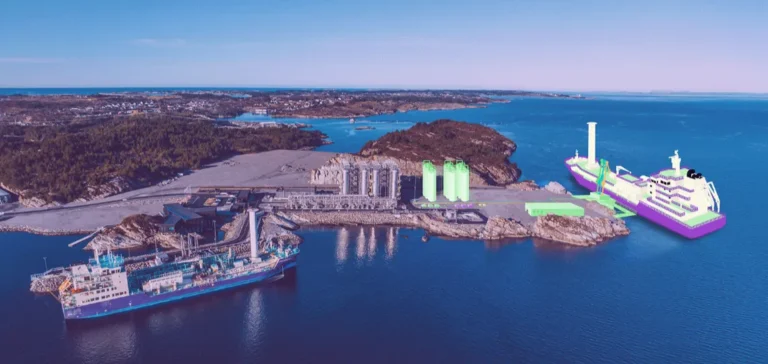The Northern Lights consortium, bringing together Equinor, Shell and TotalEnergies, announced the operational commissioning of its vessels, terminals and wells dedicated to subsea carbon dioxide (CO2) storage. The first injection was carried out in a saline aquifer located 2,600 meters beneath the seabed of the North Sea. This operation materializes several years of investments supported by both public and private funding.
Dedicated maritime and industrial logistics
The process involves capturing CO2 emitted by factories or power plants, then liquefying it to be transported by specialized ships to the receiving terminal at Øygarden, near Bergen. From there, it is transferred into tanks before being injected via pipeline to the offshore site located 110 kilometers off the Norwegian coast. The first batch comes from Heidelberg Materials’ cement plant in Brevik, an industrial partner of the project.
A still limited business model
Northern Lights charges European industrials for its CO2 transport and injection services. So far, only three commercial contracts have been signed with external players: Yara for its ammonia plant in the Netherlands, Ørsted for two biomass power plants in Denmark, and Stockholm Exergi for a power plant in Sweden. The project must demonstrate its economic viability in a context where the purchase of emission allowances (ETS, European Trading System) remains a less costly alternative for many companies.
Current capacity and outlook
Northern Lights’ annual storage capacity is 1.5 million tonnes, with a target to expand to 5 million tonnes by the end of the decade. Public funding from the Norwegian state has secured the initial phase, while industrial partners are expected to ensure future development. Commercial perspectives will depend on the pace of new contract signings and the ability to reduce operating costs.






















